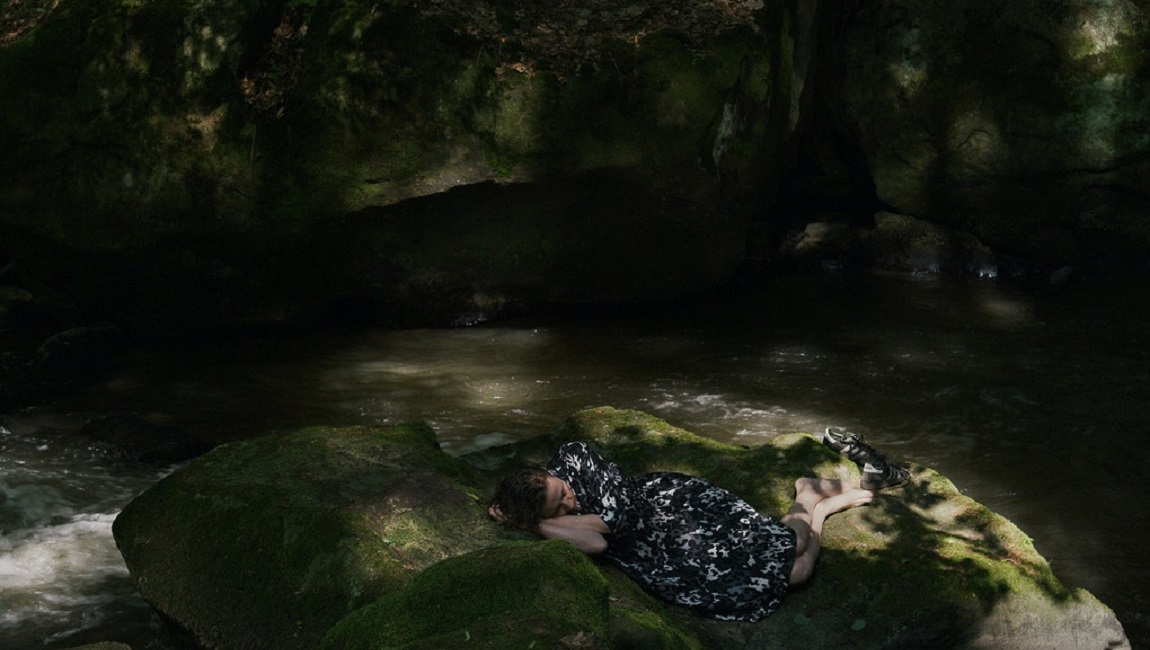When Jamie Dack’s Palm Trees and Power Lines premiered at last year’s Sundance Film Festival, it was against the backdrop of a roiling and mostly insufferable online debate about “age gap,” coinciding with social media discovering P.T. Anderson’s Licorice Pizza. That film famously features a romantic, albeit nonsexual, entanglement between a preternaturally self-assured 15-year-old boy and a driftless woman in her twenties, presented largely in a comedic, judgment-free context. Unlikely to suffer the same levels of “discourse,” Palm Trees and Power Lines also depicts a relationship between a high school student and an adult, but the tone is unmistakably more fraught. It treats the problematic nature of the coupling as the basic premise, even while touching the third rail of dramatizing statutory rape. The film takes its characters, as well as the viewer, to some extraordinarily dark places, acknowledging the predatory underpinnings of the relationship, before concluding on a note as quietly despairing as any film in recent memory. But what truly chills the blood here is how the film presents an adolescent in a going-nowhere situation, wrapping up her entire sense of self-worth in the affections of an older man, and how readily he wields kindness and the attention she’s starved for at home to break her spirit and bind her to him.
We meet 17-year-old Lea (newcomer Lily McInerny) in the final weeks of summer break before the start of her senior year. Living with her divorcée mother (Gretchen Mol) in an anonymous southern California suburb, Lea spends her days laying out in the sun, playing on her phone, and killing time hanging out with her shiftless friends. Without overplaying the drudgery, the film does an effective job of presenting Lea’s life as an ambitionless blur of casual drinking, awkward backseat hookups — the film makes a point of showing that Lea’s already sexually active before we jump into the story proper — and teenage malaise, exacerbated by mom bringing home a new guy seemingly every night. After a failed attempt at a dine and dash, Lea is saved by Tom (Jonathan Tucker), a 34-year-old diner patron claiming to be a private contractor, who intervenes on her behalf. What follows is a courtship that, under different circumstances, could be considered endearingly chaste. Tom drives her home and seems genuinely curious about her interests. She calls him up when she’s frustrated by her home life, and they talk about her hopes and dreams while watching airplanes landing at the airport late at night from the bed of his pickup truck. In contrast to the teenage boys she’s accustomed to, primarily treating her as a sexual plaything, Tom has the confidence to take things slowly; asking for permission before kissing her and even allowing Lea to play the role of aggressor. For Lea, Tom represents escape: an adult she has all to herself whose quiet intensity comes across as guileless and romantic; someone who says things to her like how she’s “not like any girl I know” and “you see me, and I can really see you.” He talks about taking her away from the monotony of her life and always looking after her. For a young woman desperate to feel special and have someone devoted to them, it’s easy to understand how she looks past the blinking red warning lights (his secretiveness, his lack of concern about their age difference, those rumors of other young women) that keep cropping up.
The term “grooming” has become so thoroughly misappropriated and devalued by the political right that it’s now all the more bracing to see the act in its true, legitimately insidious form. Although only months away from adulthood, Lea, with her large expressive eyes, stringy build, and girlish demeanor, reads on screen as considerably younger (McInerny herself is in her early twenties), and her desperation to please Tom is easily weaponized against her. It’s not simply his increased and decidedly less tender sexual appetites — which she haltingly acquiesces to — but also his possessiveness and tendency to say things like, “you’re never gonna leave me, because nobody loves you the way that I love you.” There is an ulterior motive to Tom’s generosity, and it culminates in an especially upsetting fifteen-minute-long sequence in a hotel room, where the nature of Tom’s business interests become all too clear. Filmed with clinical detachment, including a locked-down, five-minute take filmed from across the small room where Lea is forced to make small talk with a middle-aged john, we can all but observe her soul attempting to escape her body as she surrenders herself sexually while the man she loves waits outside in the hallway, preventing her escape. It’s unsettling less for the act itself — Dack’s camera angles are respectful and restrained, emphasizing Lea’s disengagement as she focuses on a smoke detector on the wall until the act mercifully concludes — than for how Lea is forced to smile through a strained meal afterwards with Tom, now laid bare as a glorified pimp, pretending everything’s great while silently she’s dying on the inside.
It’s the kind of performance from Tucker that could adversely cling to an actor; devoid of any showiness or affectations that easily signal to the audience that he’s only playing a bad guy. He merely inhabits someone who’s a monster, skillfully breaking down Lea’s defenses and exploiting her vulnerabilities, never betraying his calm and in-control demeanor. The film follows his lead, eschewing dramatic fireworks and direct confrontations for understated observations of unguarded moments. It doesn’t play like a traditional cautionary tale or a challenge that’s been overcome by its young protagonist. Rather, it’s altogether more sticky and perceptive about the lasting psychological damage that’s been visited upon Lea. What lingers is the realization of just how deeply Tom’s claws have been sunk into her, laying the groundwork for a potential lifetime of codependency and subjugation. There’s real integrity in the choices that Dack and co-writer Audrey Findlay have made here, particularly in carving out a path for hope and liberation while still acknowledging the gravitational pull of the abyss.
Published as part of InRO Weekly — Volume 1, Issue 9.







